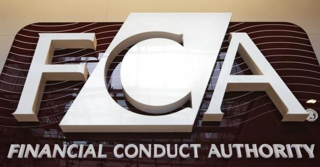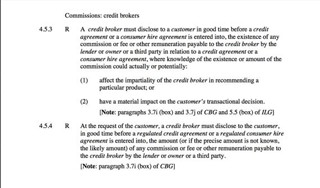The FCA’s executive director of supervision for retail and authorisations has warned its focus on affordability, business models and culture will not shift.
And the roll-out of its new conduct regime will encompass all motor finance providers by the end of this year, to set minimum expectations for conduct.
It was a focus on business models which led the FCA to investigate the world of motor finance, Jonathan Davidson told the Credit Summit in London today.
The motor retail business model “raised serious concerns about the way in which lenders in the motor finance market are choosing to reward car retailers and other brokers for business,” he said.
“This was despite the efforts of the Finance & Leasing Association and many of its members to move the industry away from the Difference in Charges business model.”
And the FCA will continue to examine the culture of firms, including their systems and controls over affordability, he said.
Davidson explained that the FCA will highlight to firms of a similar business model via letter the key risks that it sees them posing to consumers and the markets they operate in. It encourages those firms to examine how to reduce those risks, and outlines any work to diagnose and remedy the harms created.
He said the letter published to the ‘high-cost credit’ sector has content relevant to most lenders and brokers, on repeat lending and affordability related to guarantor loans.
High levels of repeat lending in high-cost credit have triggered the FCA’s interest, and it will investigate the motivation for repeat lending, and the impact of it, for both consumers and firms, he said.
“These levels of re-lending raise questions about the adequacy of creditworthiness assessments and its appropriateness for the consumer,” said Davidson.
The FCA has also noted a rapid increase in the use of guarantor loans, he said. While these are useful for consumers with poor or limited credit history, it raises a question of affordability and whether potential guarantors have enough information to understand the likelihood of them being called upon to make a payment – the FCA’s recent work has shown many guarantors are making at least one payment.
“There are also questions over the level of interest rates charged on these products, considering that these guarantors are deemed to be credit worthy. We will therefore be considering this and the business models of these firms.”
Culture of FCA-regulated businesses is crucial, and Davidson said it does not prescribe what any firm’s culture should be, however it will set the minimum standard, in the form of its Senior Managers and Certification Regime (SM&CR) which has five ‘conduct rules’.
This is already in place at insurers and banks, but it will extend to all regulated firms, including dealers offering motor finance, from December 9 this year.
“I hope that these rules will reinforce the idea that everyone will take accountability for their own actions. If you are asked to do something that isn’t right, you have the full force of the regulator behind you to make you stand up for what is right and call it out,” said Davidson.
“In the consumer credit sector I see some firms who have built and live healthy cultures. They are high performing and sustainably so.
“I see a few firms that just don’t get it at all and don’t even have a compliance culture. We act where we see this.
“I see many firms who are attempting to trade off the interests of customers with those of shareholders. These aren’t yet in a great place.
“Overall, I sincerely hope that the introduction of SM&CR can make a step change to a healthy culture in all firms.”



















Login to comment
Comments
No comments have been made yet.